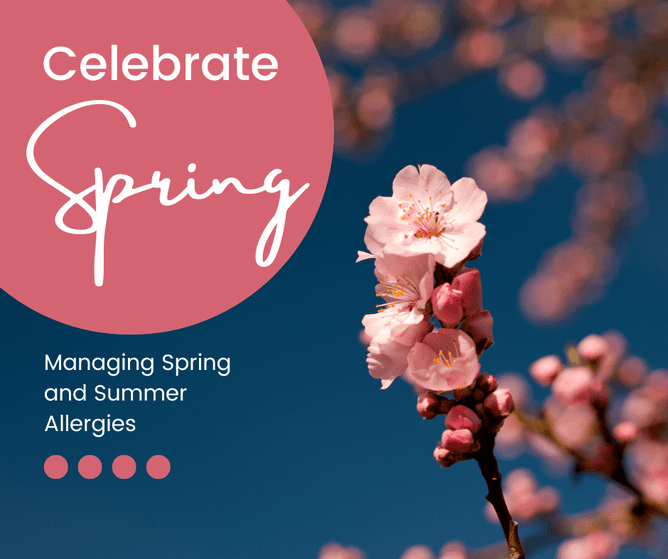Spring is a season of renewal, but for those battling spring allergies and hayfever, it can be a challenging time. The beauty of blooming flowers and warmer weather often comes hand in hand with sneezing fits, itchy eyes, and congestion. In this blog post, we'll explore effective strategies to manage these allergies and introduce some key medications that can offer relief.
Understanding Spring Allergies and Hayfever
Spring allergies, also known as seasonal allergic rhinitis or hay fever, are triggered primarily by pollen from trees, grasses, and weeds. When exposed to these allergens, your immune system reacts, leading to a range of symptoms, including:
Sneezing
Runny or stuffy nose
Itchy, watery eyes
Scratchy throat
Fatigue
Common Triggers
Pollen from trees like oak, birch, and maple, grasses such as timothy and Bermuda, and weeds like ragweed.
Outdoor activities and windy days can increase pollen exposure.
Open windows can let pollen indoors.
Pets that spend time outdoors can carry pollen on their fur.
Managing Spring Allergies and Hayfever
Medications:
Flixonase: A nasal corticosteroid spray that reduces inflammation in the nasal passages, alleviating congestion and other nasal symptoms.
Loraclear and Histaclear: Over-the-counter antihistamines that provide relief from sneezing, runny nose, and itchy eyes without causing drowsiness.
Levrix: An antihistamine that blocks histamine, relieving common allergy symptoms; it's taken once daily for 24-hour relief.
Livostin: An antihistamine eye drop commonly used to relieve itchy and watery eyes caused by allergies, including spring allergies and hayfever.
Allergen Avoidance:
Check local pollen forecasts and stay indoors on high pollen days.
Keep windows and doors closed during peak pollen times.
Shower and change clothes after outdoor activities to remove pollen.
Consider using HEPA filters in your home.
Use sunglasses outdoors to protect your eyes.
Nasal Irrigation: Saline nasal rinses can clear pollen from nasal passages and ease congestion.
Natural Remedies:
Local honey consumption may build tolerance to local pollen.
Herbal teas like chamomile and peppermint provide relief from symptoms.
Steam inhalation with essential oils like eucalyptus eases congestion.
Consult a Specialist: If allergies significantly impact your life, see an allergist or immunologist for personalised treatment.
Don't let spring allergies and hayfever dampen your spirits during this beautiful season. With the right medications, allergen avoidance strategies, and natural remedies, you can minimise the impact of these allergies and enjoy the wonders of spring. Consult on one of our pharmacists for personalised guidance on managing your specific symptoms, and take proactive steps to make this spring a more pleasant and symptom-free experience.
